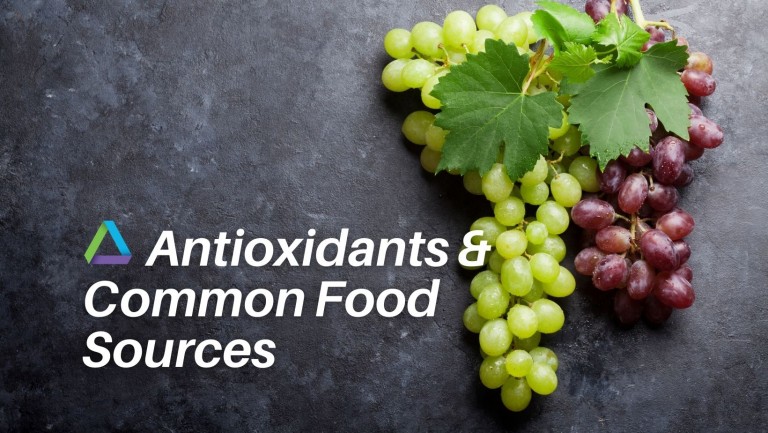Inspired Health Group contributor, Robbie Erickson, explains the importance of Antioxidants and common dietary sources in our latest Nutraceutical Blog Post.
Have you ever looked at an old bridge that was rusting? That rusting is called oxidation and it happens in our own bodies as well. The breakdown or damage is done at a cellular level caused by something called “Free Radicals.” To combat these Free Radicals nature has created some amazing compounds which we can find in our food and man-made supplements.
What does Free Radical damage look like, and what is the damage they can do? Free Radicals are highly reactive atoms or molecules that can wreak biological damage to you DNA housed in your cells. Free Radical damage can start by damaging a few cells to full blown cancer. Free Radicals are everywhere from UV radiation and the Sun, smoking of any kind, in the foods you eat, and naturally all over your environment.
Antioxidants are, quite literally, the opposite of Free Radicals. Antioxidants enter your body and begin immediately looking to scavenge up and neutralize any Free Radicals. Antioxidants are found all over the world in the foods that you eat, in multiple plants, many companies produce antioxidants for food additives and industrial chemical companies to produces various products.
When it comes to health, antioxidants tend to be the useful byproduct. Not many people go out looking for food just to consume antioxidants. Absorbing an abundance of antioxidants comes from eating a healthy diet. The United States Department of Agriculture and Food and Drug Administration both have excellent research done on antioxidants. According to the National Institute of Health, “diets high in fruits and vegetables are good sources of antioxidants.”
The best natural sources of antioxidants are as follows:
- Red, Purple, and Blue Grapes (Resveratrol, Anthocyanin and Pro Anthocyanins …wine doesn’t count)
- Red Berries (Various photo chemicals and Vitamins)
- Blueberries (Elagic Acid)
- Nuts (Omega VI, Omega III, and Resveratrol)
- Dark Green Vegetables (Phyto Chemicals, Vitamins A, C, and E)
- Sweet Potatoes and Orange Vegetables (Vitamins A, C, and B6)
- Tea (Catechins, Pro Anthno Cyanins, and Antho Cyanins)
- Whole Grains (Phytochemicals)
- Beans (Vitamin C, Folate, and Zinc)
- Fish (Omega III Fatty Acid)
One of several symptoms to be aware about for a possible deficiency in antioxidants or Free Radical Damage is inflammation. Inflammation can happen over time, much like the rust on an old bridge or it can spring upon you suddenly. Over time, if left unchecked, can lead to a host of problems from heart disease to severe arthritis. One way to combat this before getting into the pharmaceutical industry is supplementation.
Antioxidant supplementation may decrease inflammation and you could achieve outstanding results greatly improving your quality of life. As always, obtain your supplements from a trusted and professional source. Talk to your healthcare professional today to see if you are at risk or have certain inflammation markers.
- Robbie Erickson

